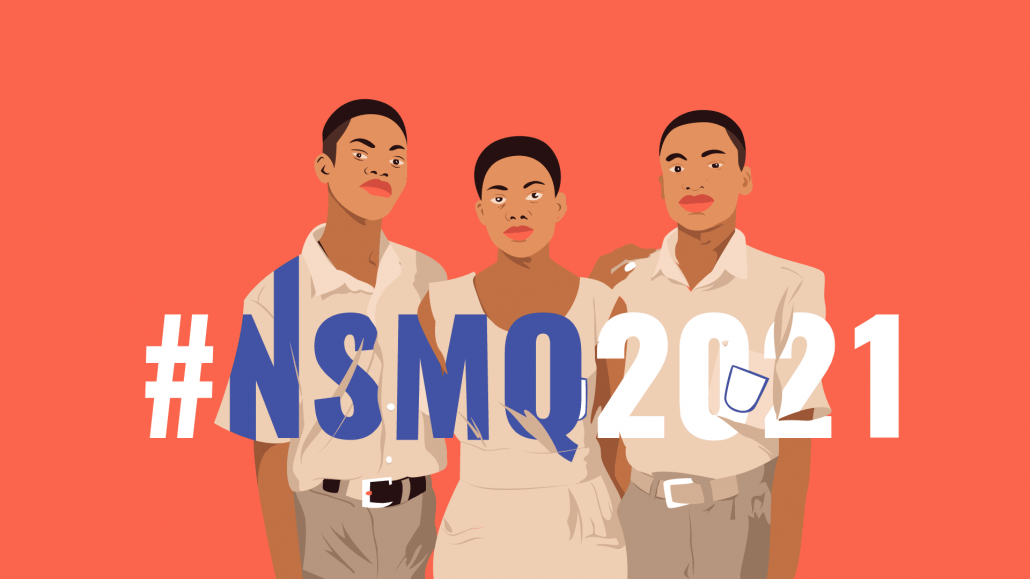Attributing Success Of An Ewe To Juju Is Not Funny

By fiifi DZANSI
23rd November 2021.
Keta Senior High Technical School (Ketasco) made it to the National Science and Maths Quiz (NSMQ) finals. They strolled past Wesley Girls SHS and Tamale SHS in the semifinals.
Twitter went boom! Amid the drama, there were claims that Ketasco had the aid of Juju and ancestors such as Togbe Agorkoli and Togbe Tsali – two mythical characters.
Agorkoli was a vicious king who made life wretched for his subjects. Compare him to Hitler, and you may be right.
How could such a chap (who’s dead anyway) back a school to glory in a science and maths quiz?
Blogs swiftly screenshot the tweets for their articles, calling them “hilarious reactions” in the NSMQ.
Disgusting.
The youth dispersing this may be having fun.
But those seemingly unharmful tweets go beyond kidding around on a virtual platform to entertain others.
It’s really a lingering problem we have all failed to solve – Tribalism.
Every now and again, I have to face this harsh reality of life.
I came back to Accra in 1995, after spending over 10 years in the Volta Region (People from the Volta region in Ghana speak Ewe and are referred to as Ewes or Voltarians). In my first exams in Junior Secondary School form two, I placed first in Ga, a language I could barely speak.
Some of my mates attributed my academic success to Juju. I heard they went to a ‘prophet’ to reveal my deeds to them. Such a cowardly step was a mere excuse to keep lazing about.
After a meeting, one evening, An elderly man among us had a phone call. In the beginning, he spoke with a hum, then somewhere in the middle of the conversation, we heard him say, “Hey, how can you leave your building to a Ewe man to look after? He’ll kill you and take it!”
There was an overpowering silence among us.
We were shocked to the core over such a thoughtless statement coming from a grey-headed man.
It hurts that I have to go through this stigma or hear about the predicaments of others.
The unfortunate thing about it is, you don’t choose your tribe – you inherit it. And there’s nothing you can do about that.
Long ago, rumours spread through the entire county, accusing Ewes of soliciting the help of their ancestors and gods to kill others or make their paths prosperous.
If this were true, that Ewes have the support of their gods, the Volta region would’ve been the most developed in Ghana.
But it’s not.
Pupils study in dilapidated buildings in some parts of the region. Poverty is prevalent.
These are just two infinite examples.
Not everyone from this region dabbles in Juju, or worse, have ‘native insurance.’
Like all other places on Earth, people have their prefered religion they subscribe to. It’s a freedom of choice.
Don’t go flipping pillows in the Volta region in search of idols. You might not find any.
Such generalisation – pressing people into such a tiny box is sensitive and leaves scars that cannot heal.
There are reports of people denied employment because they come from the Volta Region. Others also lost relationships.
This is tribalism in plain clothes in broad daylight, in a country that rides on the fictitious banner of peace. We blame Westerners for racism. We join the #BlackLivesMatter movement from here. Yet, we overlook this divisive act. And pretend everything is ok.
Back to Ketasco.
Well, after cuddling the nation’s heart, they failed to lift the trophy. In our hearts, they’re the winners. Though they came without a glamorous history as the other two finalists, they fought with dignity and gave hope to us all.
Ketasco made history as the first SHTS from the Volta to make it to the NSMQ finals.
For Ghana to move forward in peace without hypocrisy, we need to blur the line between tribes and allocate resources to develop all parts of the country without favouritism.
Also, take a note from my parents. My dad married from a different tribe, and they gave me a name from another tribe. Mom learned Dad’s language and culture and vice versa.
This courageous act instilled tolerance in us and paved the way we treat others in the future.

